Leadership is About Influence, Not Power
Think about the most impactful leaders you’ve worked with. Were they the ones with the highest-ranking titles, or were they the individuals who earned your respect, built strong relationships, and inspired action?
Leadership is not about having a title or formal authority—it’s about influence. Some of the most effective leaders don’t have direct reports, decision-making power, or control over budgets, yet they drive initiatives, unite teams, and create change.
In today’s workplace—where cross-functional teams, remote work, and matrix structures are the norm—leading with influence is more important than ever. Regardless of your position, you will find yourself needing to persuade colleagues, rally support, and gain buy-in for ideas or projects. Whether you’re managing projects, mentoring colleagues, or championing initiatives, your ability to gain trust, inspire action, and drive results without relying on authority is what makes you a true leader.
This blog explores how influence-based leadership works, why it is more effective than positional authority, and how you can develop the skills necessary to lead effectively—no matter your role.
The Difference Between Authority and Influence
Many people assume that leadership comes from a title or position, but leadership and authority are not the same thing. Authority is given to you by an organization—it’s the ability to direct, manage, or make decisions based on your rank. Influence, on the other hand, is earned through relationships, credibility, and the trust of those around you.
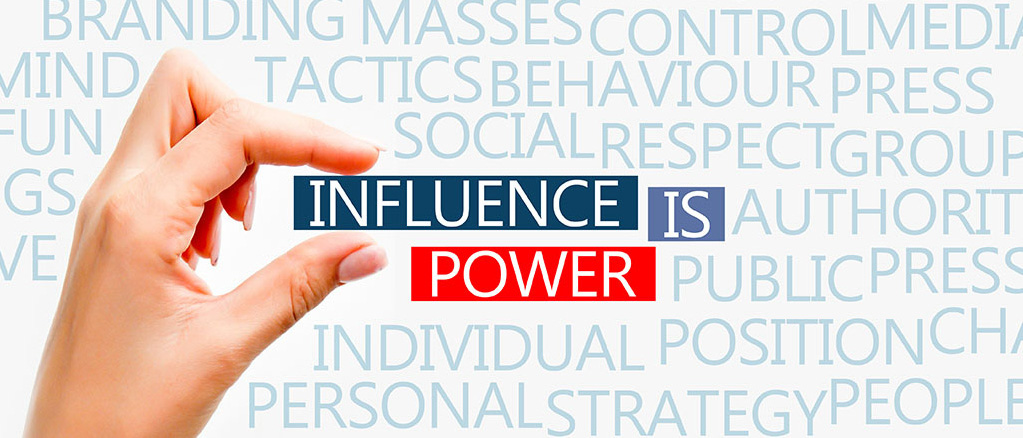
Consider the difference between a manager who enforces rules simply because they have the power to do so and a leader who people naturally want to follow. The first may get compliance, but the second gets commitment. When people follow you because they trust and respect you—not because they have to—you achieve long-term loyalty and engagement rather than short-term results.
Relying solely on authority can create resentment, resistance, and fear. Influence, however, creates an environment where people feel valued, understood, and motivated to contribute. The best leaders understand that while authority may give them control, influence gives them impact.
Five Key Strategies to Lead with Influence
So how do you develop influence as a leader? How do you inspire and motivate others when you don’t have formal power over them? The key is to build trust, demonstrate value, communicate effectively, solve problems, and remain consistent in your actions.
1️⃣ Build Strong Relationships
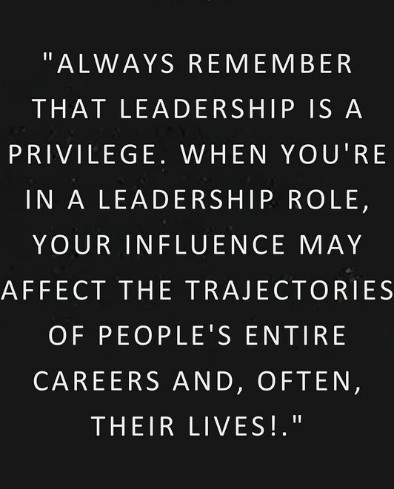
One of the most effective ways to develop influence is by fostering meaningful relationships. People naturally follow those they trust and respect, so if you want to lead without authority, start by investing in the people around you.
This means actively listening, showing empathy, and taking a genuine interest in others. Leaders who take time to understand their colleagues’ challenges and offer support create strong connections that make collaboration easier and influence stronger.
If you want to build influence, don’t just focus on what you need from others—consider how you can help them succeed. By supporting others without expecting immediate returns, you establish goodwill and credibility that will serve you in the long run.
2️⃣ Lead with Expertise, Not Authority
People don’t follow titles—they follow those who add value. If you want to be seen as a leader, you must demonstrate expertise, share insights, and offer solutions that make an impact.
Consider Dr. Anthony Fauci during the COVID-19 pandemic. He didn’t have political authority, yet he became one of the most trusted voices in public health. Why? Because he provided credible, well-researched guidance, and people respected his knowledge. He didn’t demand influence; he earned it by consistently demonstrating expertise and communicating clearly.
The best leaders focus on competence, not arrogance. They are confident in their knowledge, yet willing to learn from others. If you want to grow your influence, focus on deepening your knowledge and generously sharing it with those around you.
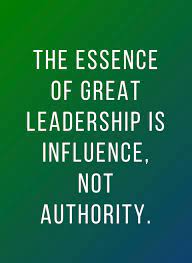
3️⃣ Master Persuasive Communication
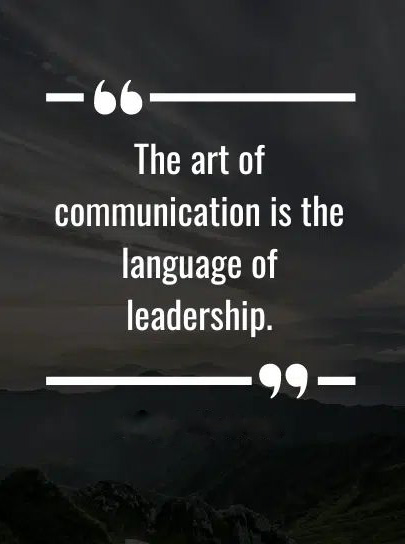
Influence often comes down to how well you communicate your ideas and inspire action. The most influential leaders know how to frame their messages in ways that resonate with their audience.
The key to persuasive communication is understanding your audience and tailoring your approach. Some people respond to data and logic, while others are moved by emotion and storytelling. The best communicators balance both, making their message both credible and compelling.
A great example of this is Martin Luther King Jr. His leadership wasn’t based on authority, but on his ability to inspire through words. His "I Have a Dream" speech wasn’t just a demand for civil rights—it was a vision for the future that people could believe in and rally behind.
If you want to lead with influence, practice crafting messages that are clear, engaging, and relevant to your audience.
4️⃣ Be a Problem-Solver, Not a Dictator
Leaders gain influence by being seen as problem-solvers who make things easier for others. Instead of simply pointing out challenges, they proactively work to find solutions.
Indra Nooyi, former CEO of PepsiCo, transformed the company by addressing health and sustainability concerns before they became major issues. She didn’t wait for regulations or public pressure—she anticipated challenges and took action. That kind of forward-thinking leadership earned her widespread respect and influence.
If you want to be more influential, don’t just highlight problems—be the person who offers solutions and takes action.
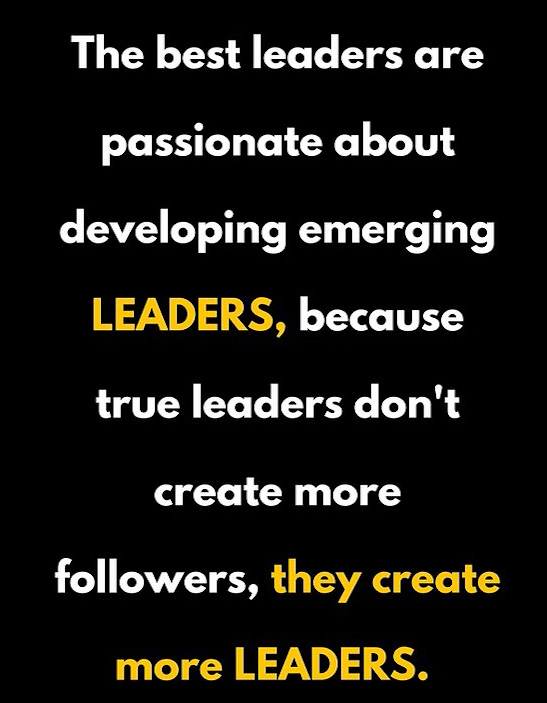
5️⃣ Demonstrate Consistency and Integrity
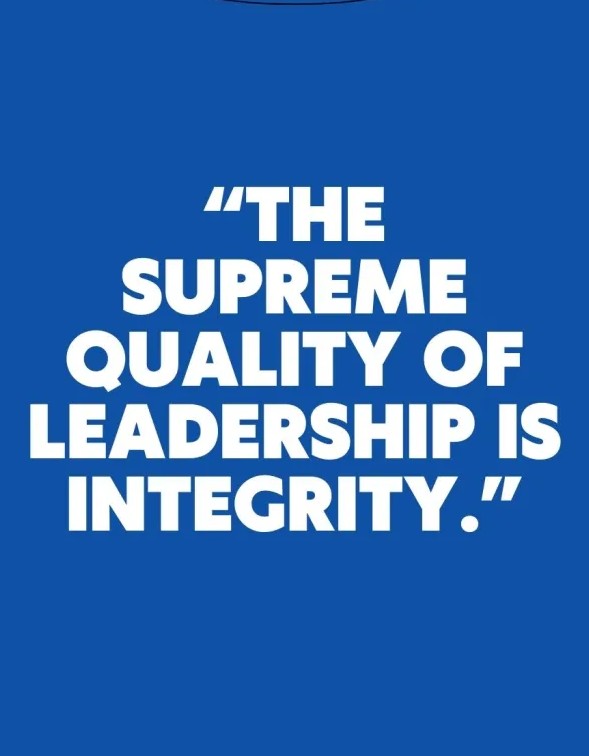
Influence is built on trust, and trust is built through consistency and integrity. People follow leaders who are reliable, who follow through on their commitments, and who act with honesty and fairness.
Warren Buffett is a perfect example of this. Over decades, he has built a reputation for ethical decision-making, transparency, and steady leadership. His influence doesn’t come from flashy tactics or aggressive authority—it comes from trustworthiness and consistency.
If you want to be influential, make sure your words and actions align. Keep your commitments, be honest, and lead with integrity—because once trust is broken, influence is difficult to regain.
Real-World Example: Leading Without a Title
Imagine a mid-level project manager who has been tasked with leading a cross-functional initiative. They don’t have direct authority over team members, yet they must align marketing, finance, and operations to execute a major project.
How do they succeed?
Instead of relying on authority, they build strong relationships across departments, ensuring that stakeholders feel heard and valued. They communicate a clear vision, gaining buy-in through compelling messaging rather than directives. They establish credibility by demonstrating expertise, providing clear guidance and solutions rather than just assigning tasks. And most importantly, they follow through on commitments, proving they can be trusted.
By doing this, they earn the confidence and cooperation of others, successfully leading the project—not because they had a title, but because they had influence.
Download the Free Tool: Influence & Communication Planner
If you want to strengthen your leadership influence and communication skills, this free Influence & Communication Planner will help you:
📥 Download it now to:
✔ Assess your current level of influence.
✔ Identify key relationships to strengthen and leverage.
✔ Improve your persuasive communication and messaging.
✔ Develop a plan to increase your leadership impact.
Final Thoughts: Influence is the Future of Leadership
True leadership isn’t about a title—it’s about earning trust, inspiring action, and making an impact. By focusing on relationships, expertise, communication, and integrity, you can develop influence that lasts—regardless of your position.
Start applying these strategies today, and watch your leadership influence grow.